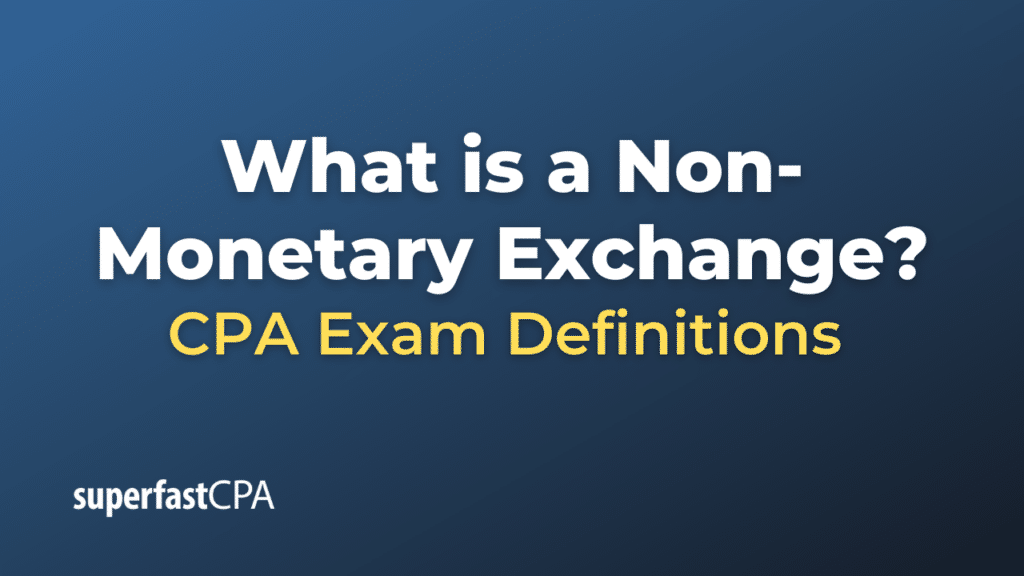Non-Monetary Exchange
A non-monetary exchange is a type of business transaction where assets (such as goods, services, or other assets) are exchanged between parties without any cash or cash equivalents being transferred.
Instead of money, non-monetary exchanges involve the swap of assets such as inventory, property, plant, and equipment, intellectual property, or other resources of value. These types of exchanges are quite common in business environments, and they are usually governed by certain accounting principles to ensure that the value of the assets exchanged is properly recorded and reported.
For example, one company might exchange a piece of machinery for another company’s vehicle if both parties agree that the two assets have roughly the same value. Or, two companies might swap advertising space with each other, agreeing to promote each other’s products in their respective advertising platforms without any money changing hands.
In accounting, the value of the assets in a non-monetary exchange is typically recorded based on the fair value of the assets given up or the fair value of the assets received, whichever is more clearly evident. Fair value is the price that would be received to sell an asset or paid to transfer a liability in an orderly transaction between market participants at the measurement date.
However, there are exceptions in cases where the transaction lacks commercial substance or the fair value of neither the asset received nor the asset given up is reliably measurable, in which case, the transaction is recorded at the carrying value (book value) of the asset given up, adjusted for any cash or cash equivalents transferred.
Example of a Non-Monetary Exchange
I’ll provide an example of a non-monetary exchange using two hypothetical companies: AutoCo and TruckInc.
AutoCo is a company that manufactures cars, and TruckInc is a company that produces trucks. Both companies have a need for the other’s product. AutoCo needs a fleet of trucks for transporting its cars to dealerships, and TruckInc needs a fleet of cars for its sales force.
Rather than selling their products to each other for cash, the two companies agree to a non-monetary exchange. AutoCo agrees to provide TruckInc with 50 cars in exchange for 30 trucks from TruckInc. Both parties agree that the value of the trucks and cars being exchanged is approximately equal.
In this transaction, no cash changes hands. Instead, the companies are trading assets with each other. The exchange would be recorded in each company’s books at the fair value of the assets given up or the assets received, if that is more clearly evident.
This is a simplified example, but it illustrates how a non-monetary exchange works. In real-world scenarios, these types of transactions can be more complex and might involve various adjustments based on the fair value of the assets, the book value of the assets, and any cash that might also change hands. Also, factors like future cash flows expected from the assets, the strategic or operational intent of the exchange, etc., might influence the decision to engage in a non-monetary exchange.













